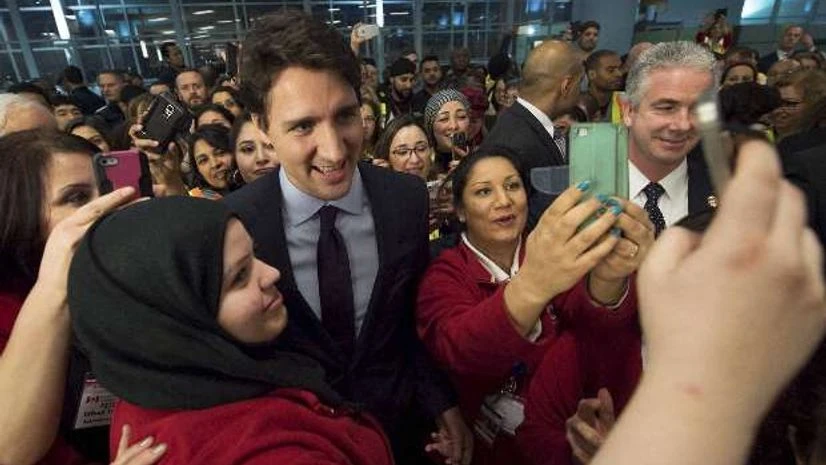Canada will offer temporary residence permits to people stranded in the country as a result of US President Donald Trump's travel ban, the immigration ministry has said.
"Let me assure those who may be stranded in Canada that I will use my authority as minister to provide them with temporary residency if needed as we have done in the past," Immigration Minister Ahmed Hussen said at a news conference.
Hussen did not indicate how many people could be concerned by this measure, but he said that as of early Sunday afternoon, the Canadian authorities were unaware of anyone stranded in the country by the US order.
Also Read
Trump on Friday suspended the arrival of all refugees to the US for at least 120 days and barred entry for 90 days to people from seven Muslim-majority countries: Iraq, Iraq, Libya, Somalia, Sudan, Syria and Yemen.
Hussen, who is of Somali origin, said the Trump administration had assured Ottawa that Canadians holding dual nationality with those countries would not be affected by the US ban.
He said that people from those seven countries who have a valid Canadian permanent residency card can still enter the United States. However, under the US order, the ban will apply to people from the targeted countries who are passing through Canada.
More than 35,000 Canadians with dual citizenship have citizenship with one of the seven countries, he added.
Hussen also stressed that Canada would continue to pursue an immigration policy based on compassion while at the same time protecting the security of its citizens.
On Saturday, Prime Minister Justin Trudeau welcomed immigrants to Canada, striking a sharp contrast with Trump's sweeping executive order restricting immigration the previous day.
"To those fleeing persecution, terror & war, Canadians will welcome you, regardless of your faith. Diversity is our strength #WelcomeToCanada," Trudeau posted on Twitter.
According to the latest Canadian census, from 2011, one out of five people in the country are foreign-born.
Canada has welcomed more than 39,670 Syrian refugees between November 2015 and the beginning of this January, according to government figures.

)
